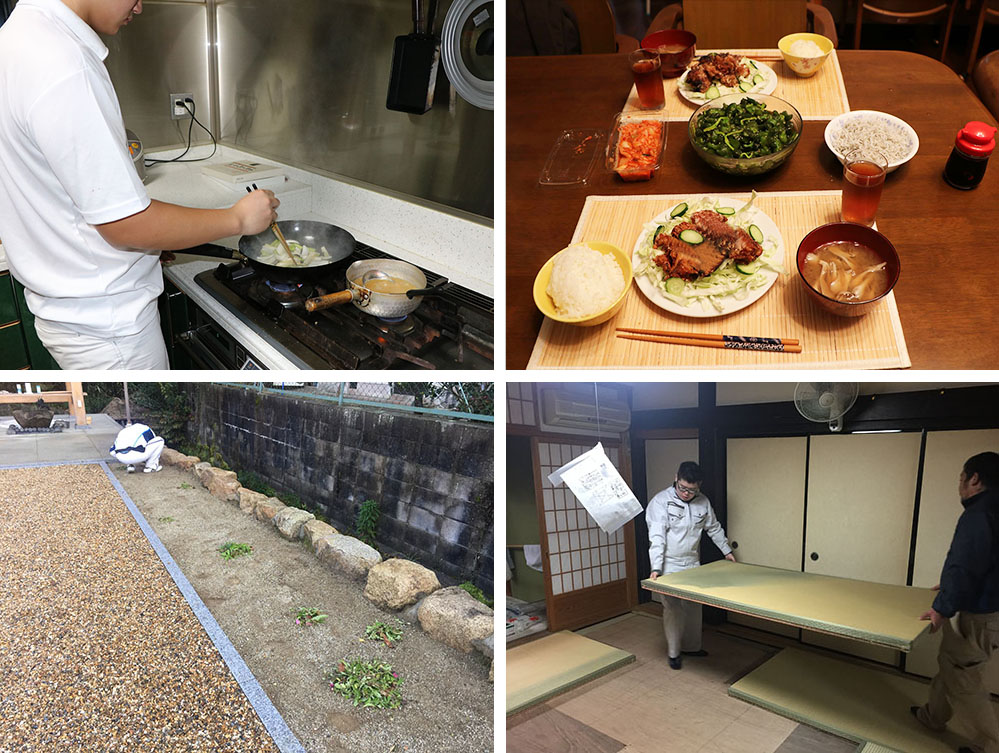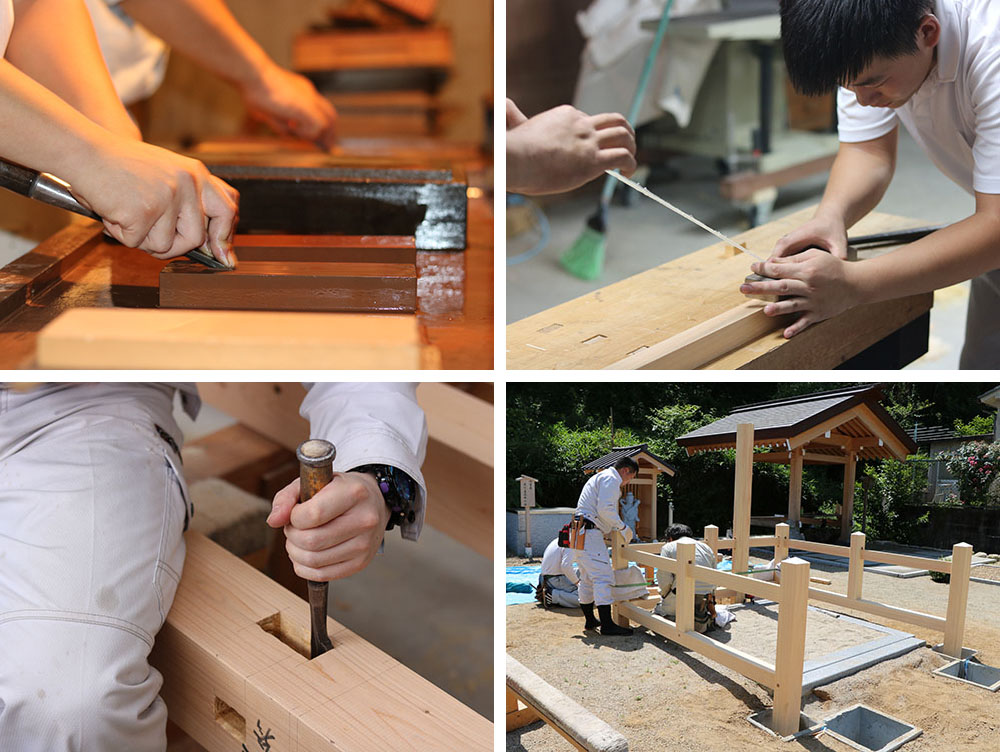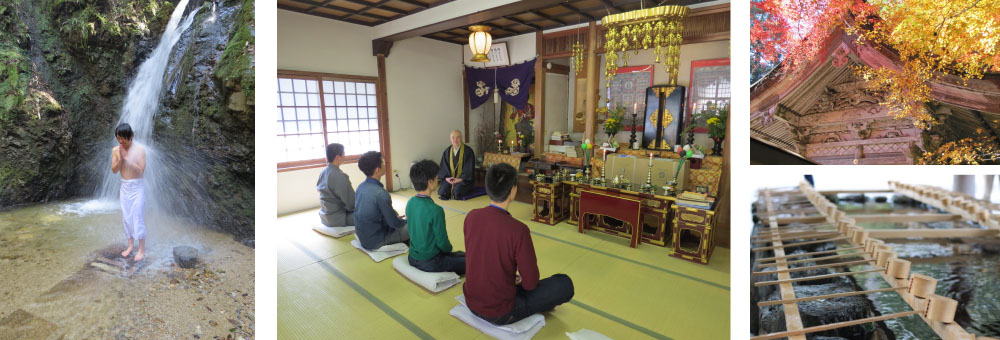
Shrine & Temple Carpenters Training Course

Three-year, live-in training
Learning the basics of good spirit, techniques and physical condition
Training shrine & temple carpenters with acceptable skills onsite

Training the body will stabilize the rich spirit and the techniques become a part of you. The capital of a shrine & temple carpenter is definitely his "body."

You will live at a dormitory for live-in training and share the daily lives with comrades who have the same aspiration.
* Monday through Friday training is required.
* Days-off on Saturdays and Sundays.
Get the "body" by acquiring the items below:
Getting up and going to bed early
Organization, arrangement and cleaning
Cooking their own meals
Manners
Acquire the right lifestyle!
See more details
Making the Habit of Getting up and Going to Bed Early
Apprentices acquire the lifestyle of a shrine & temple carpenter by making a habit of getting up and going to bed early.
Organization, Arrangement and Cleaning
Organization, arrangement and cleaning are the most basics of the basics for a shrine & temple carpenter. Not being able to organize, arrange and clean regularly means being unable to create an environment for great work.
Cooking their Own Meals
For a shrine & temple carpenter, their own body is the base of everything. New carpenters lack techniques to do actual work. The only way for them to contribute is to cook meals for those who have been there longer than they have. Making meals is said to be an epitome of a shrine & temple carpenter's work, and it develops management abilities which include "process, quality and safety." Managing to make meals properly enables the apprentice to do a great job as a result of learning how to arrange and prepare in order to accomplish tasks.

Honing the techniques will nurture rich spirit and train the body.
Creating the work environment and preparing sharp tools are the most important abilities.

Get the "techniques" by acquiring the items below:
Organization, arrangement and cleaning of the workspace
Honning
Making original tools
Reporting, communicating and consulting about work
Carving and marking wood with ink
By repeating many, many times, the body learns how it feels
See more details
"Steal" Through Observation
Work needs to be learned onsite. While assisting senior carpenters, apprentices observe the types of preparation and method for the job. They imagine how they would actually do the work themselves, and make a habit of preparing tools as they assume the job will be coming to them.
Sharpening Tools
Tools are the life of an artisan. The act of sharpening is so important that its quality can be used to judge the quality of work. By simply and continuously sharpening blades day after day, apprentices learn how to make blade edges even, as well as how it feels. They need to master the sharpening techniques to make tools with crystal-clear shine.
Tool-Making
To be recognized as a qualified shrine & temple carpenter, an apprentice must be able to make their own tools. Creating original tools necessary for the job, which leads to a job well-done.
Carving by Hands (to assemble)
Shrine & temple carpenters are actually committed to complete the job. There may be many difficulties they must overcome along the way before delivery. They gain experiences by completing each job carefully one by one.

A rich spirit will hone the techniques and train the body.
Acquiring the "body" and "techniques" will open the door to discipline the "spirit (one's altruism)."

Learn about the "spirit" by practicing the items below:
Chanting sutras such as "Heart Sutra" and "Acala Mantra."
Mental training under a waterfall
Working inside temples: Volunteer activities at shrines and temples
Worship at shrines and temples
You can't work alone. Compassion is important.
Master Carpenters Training Course
Training Master Carpenters of the Next Generation
Graduates of the Shrine & Temple Carpenters Training Course who aspires to be a Master Carpenter may further pursue this program.
Management skills necessary as a Master Carpenter will be taught in this Master Carpenters Training Course.
* This may not apply if the School Manager has given permission after an interview.


